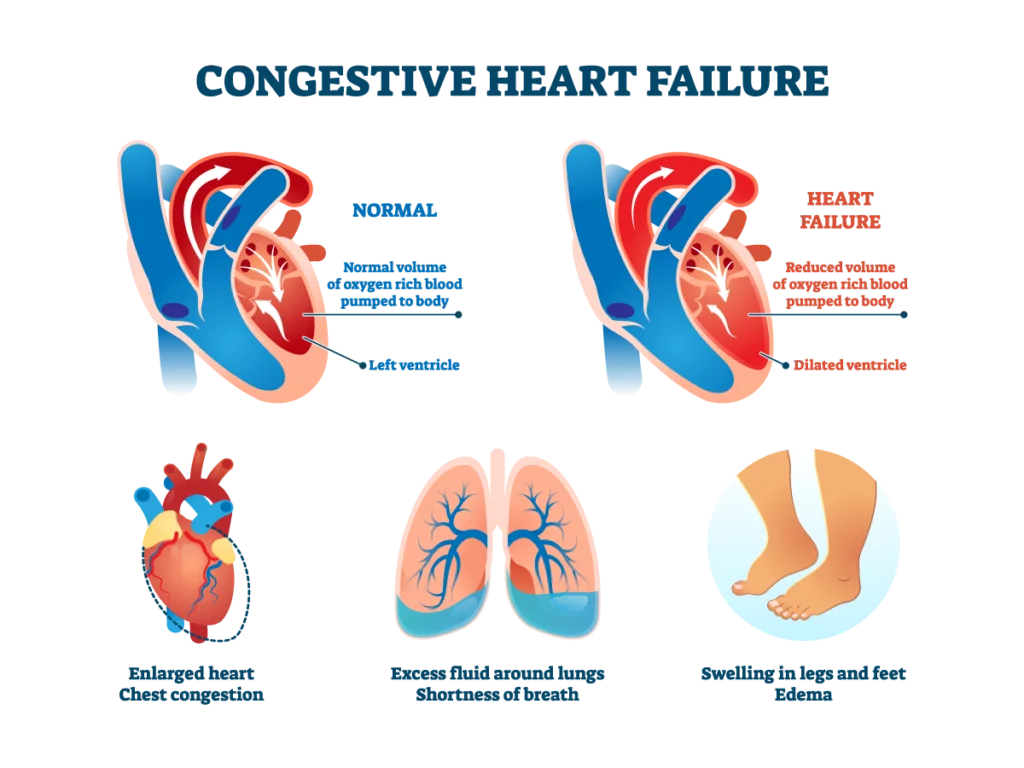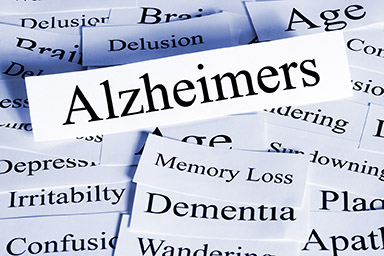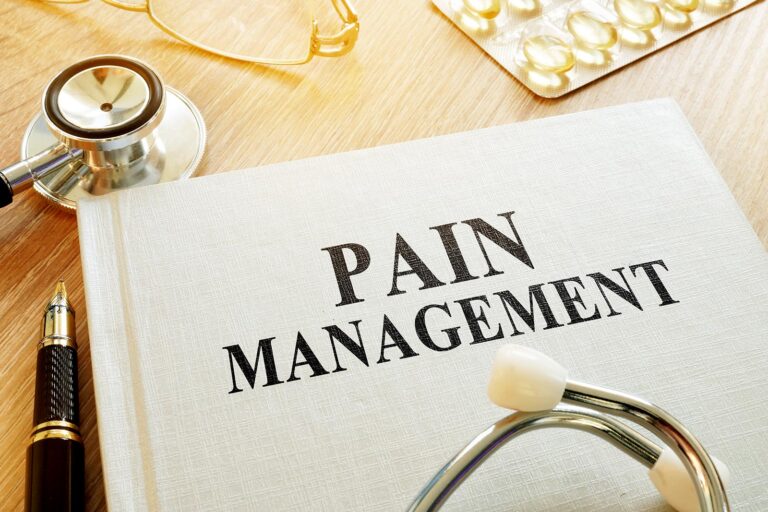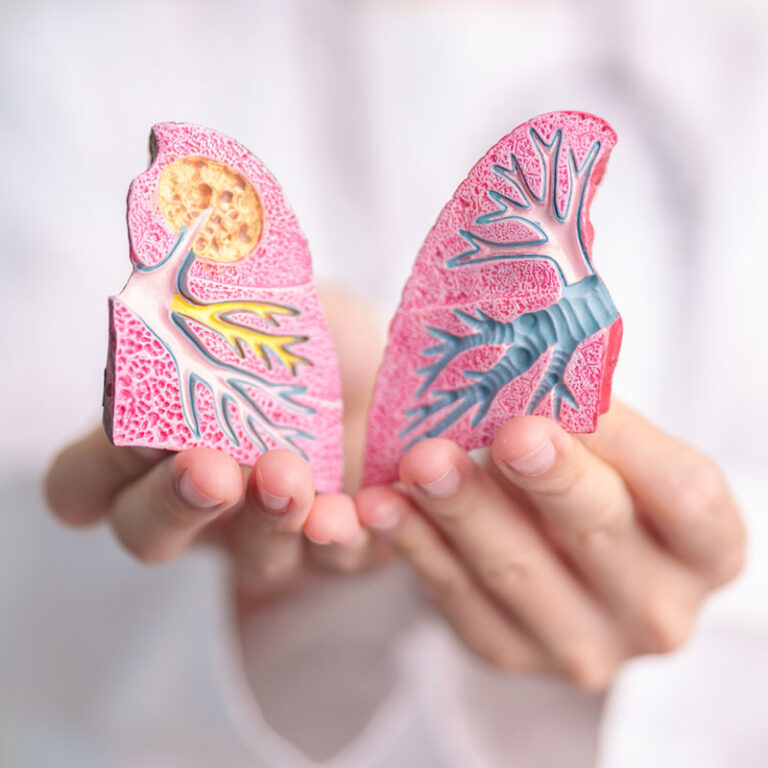From “pre-heart failure” to advanced disease, learn about the four stages of congestive heart failure and how each one is treated.
While the term “congestive heart failure” may sound scary, it doesn’t actually mean your heart has stopped beating or is about to stop. In actuality, congestive heart failure (CHF) — also simply known as heart failure — occurs when the heart can’t pump enough blood to keep up with your body’s needs.Congestive heart failure is quite common, affecting more than six million people in the United States. There are four stages of congestive heart failure, with each advancing in severity. Read on to learn more about the stages, symptoms, causes of congestive heart failure, and treatment options.
Are you or a loved one living with a chronic or terminal illness?
The Sage Family of Companies is here to help.
Are you or a loved one living with achronic or terminal illness?
The Sage Family of Companies is here to help.
What Is Congestive Heart Failure?
Congestive heart failure is a chronic condition in which the heart can’t pump enough blood to support the body’s organs. Blood and fluid can collect in the lungs, legs, and feet, causing complications like shortness of breath and swelling. Treatments include medications and dietary changes.
Heart failure doesn’t mean your heart has stopped beating, but it does mean it’s not pumping as well as it should.
The Four Stages of Congestive Heart Failure and How Each is Treated
Congestive heart failure is a long-term illness that can advance and worsen with time. There are four stages, and the first represents a high risk of experiencing the full illness. Each stage progresses until the advanced stage. Fortunately, there are steps you can take at each stage to treat the condition.
Here’s a closer look at each stage and what you can do to treat it.

Stage A
Stage A, sometimes known as pre-heart failure, means you’re at high risk of developing the full illness. This may be caused by your genetic makeup or by another condition such as high blood pressure, diabetes, metabolic syndrome, or coronary artery disease.
During stage A heart failure, there’s no structural damage to the heart and no symptoms.
Important steps to take if you have stage A heart failure include:
- Quitting smoking
- Regular exercise, such as walking daily
- Maintaining a healthy weight
- Cutting back on alcohol
- Controlling blood pressure and cholesterol with dietary changes, physical activity, and medication if necessary
- Treating conditions like coronary artery disease, diabetes, and metabolic syndrome
Stage B
Stage B is still considered pre-heart failure. This is when the left ventricle isn’t functioning well or has structural damage. Still, at this stage, most people don’t experience any signs of congestive heart failure.
Stage B congestive heart failure treatment includes the treatments for stage A, as well as some of the following:
- Angiotensin-converting enzyme inhibitor (ACE-I) or angiotensin II receptor blocker (ARB)
- Beta-blocker (if you’ve had a heart attack)
- Possible surgery if you have coronary artery or valve disease
Stage C
Stage C heart failure occurs when you have structural damage to the heart, as well as the symptoms of heart failure.
Treatment for stage C congestive heart failure can include treatments for stages A and B, as well as the following:
- Diuretics, or water pills
- Aldosterone antagonist
- Restriction of dietary salt
- A hydralazine/nitrate combination if symptoms persist when other treatments don’t work and if you’re African American
- Restriction of fluids
- Pacemaker
- Implantable cardiac defibrillator (ICD)
Stage D
If you or a loved one has stage D congestive heart failure, you have advanced symptoms that don’t get better with treatment. This is the final stage of heart failure.
Treatments from stages A, B, and C continue, but more invasive options may be necessary. These specialized interventions can include:
- Heart transplant
- Ventricular assist devices
- Heart surgery
- Continuous infusion of intravenous inotropic drugs
- Palliative or hospice care
If you or a loved one shows signs of one of the four stages of congestive heart failure above, contact a provider about treatment options.
Are you or a loved one living with a chronic or terminal illness?
The Sage Family of Companies is here to help.
Are you or a loved one living with achronic or terminal illness?
The Sage Family of Companies is here to help.
Symptoms of Congestive Heart Failure
You won’t experience symptoms during the early stages of heart failure. But in advanced cases, the obvious signs of congestive heart failure may appear slowly or suddenly.
Common congestive heart failure symptoms include:
- Shortness of breath with activity or when resting
- Fatigue
- Weakness
- Waking up at night short of breath
- Chest pain
- Swelling in the legs and ankles
- Rapid or irregular heartbeat
- Rapid weight gain
- Swelling or bloating in the stomach
- A dry cough that doesn’t go away
- Nausea
- Loss of appetite
- Reduced ability to exercise
Causes of Congestive Heart Failure
Congestive heart failure occurs when the heart becomes weakened, damaged, or the heart muscle becomes stiff. Any of the following conditions may cause this to occur:
- Coronary artery disease
- Heart attack
- High blood pressure
- Heart valve disease
- Congenital heart disease
- Diabetes
- Cardiomyopathy
- Irregular heart rhythms, or arrhythmia
- Myocarditis (inflammation of the heart muscle)
- Kidney disease
Sudden congestive heart failure may be caused by any of the following:
- Blood clot in the lungs
- Allergic reactions
- Severe viral infections
Risk Factors of Congestive Heart Failure
Having any of the conditions above, such as coronary artery disease or diabetes, puts you at a higher risk of one of the four stages of congestive heart failure.
Other risk factors include:
- Being over the age of 65
- Alcohol use
- Smoking tobacco
- Illicit drug use
- Obesity
- A family history of congestive heart failure
- A sedentary lifestyle
- An unhealthy diet that’s high in fat and salt
- Sleep apnea
Certain medications also increase the risk of congestive heart failure, including drugs to treat diabetes and some cancer treatments like chemotherapy. If you have any questions or concerns about any medications you’re taking, talk to your doctor. Don’t stop taking any medication without first consulting a healthcare provider.
How Congestive Heart Failure Is Diagnosed
To diagnose congestive heart failure, your doctor will take a full medical history. They may ask you about other health conditions or a family history of congestive heart failure. They may also discuss alcohol and tobacco use, medications, and any cancer treatments in your past.
Your doctor will also perform a physical exam, listening to your heart and lungs with a stethoscope and checking for signs of swelling in your legs, ankles, or abdomen.
Your provider may also use the following tests to diagnose congestive heart failure:
- Blood tests
- Chest X-ray
- Cardiac catheterization
- Electrocardiogram (EKG or ECG)
- Echocardiogram
- Ejection refraction
- Stress test
- Magnetic resonance imaging (MRI) of the heart
- Computed tomography, or CT, scan of the heart
- Coronary angiogram
- Myocardial biopsy
What to Expect if You Have Congestive Heart Failure
If you’ve been diagnosed with one of the four stages of congestive heart failure, know that it’s a lifelong condition that you’ll need to treat indefinitely. However, with the right care, it’s possible to live an active and full life with this disease.
Your outlook with a heart failure diagnosis will depend on the stage of the disease, your symptoms, how well you follow your treatment plan, and how well you respond to treatment.
Life Expectancy For Heart Failure Patients
Several factors affect life expectancy for heart failure patients, including severity of the condition, age, genetics, and other health conditions.
One recent review of 125 heart failure studies found that about 25 percent of patients with congestive heart failure die within a year. Another study of nearly 60,000 heart failure patients put the risk of death at:
- 76 percent in the first year
- 45.5 percent at five years
- 24.5 percent at 10 years
- 13 percent at 15 years
This research also found some good news. Overall survival rates for people with congestive heart failure have improved by 6.6 percent over the past two decades.
If you have a loved one who was recently diagnosed with a heart disease, you may find our article Caring for a Loved One with Heart Disease helpful.
FAQ
Here are answers to the most frequently asked questions about the 4 stages of congestive heart failure.
How Long Can You Live With Stage 4 Congestive Heart Failure?
Stage 4 congestive heart failure is marked by severe symptoms and decreased quality of life. The majority of patients live less than a year. According to research, risk of death within a year of a stage 4 congestive heart failure diagnosis is 75 percent.
How Quickly Does Heart Failure Progress?
The speed of heart failure progression is fairly unpredictable and varies with each person. If you adhere to your treatment plan, making the appropriate lifestyle changes and taking medication as prescribed, it’s more likely that your symptoms will remain stable. Advanced stages of heart failure do tend to worsen more rapidly, with a high mortality rate within one year at stage 4.
What Are Signs of Worsening Heart Failure?
Four signs your heart is failing include: Shortness of breath even while resting, reduced ability to exercise, fatigue, and swelling in the legs, ankles, or abdomen. Other symptoms of worsening heart failure are rapid weight gain, a dry, hacking cough, and waking up in the middle of the night short of breath.
Summary
Congestive heart failure is a chronic disease that needs lifelong treatment and management. Depending on the stage of heart failure, interventions are available that can enable you to live a full and active life.
Later stages of heart failure come with worsening symptoms and can be life-limiting. If you have stage 4 congestive heart failure, you may want to consider palliative care, which can provide comfort and improve your quality of life while you’re undergoing treatment.
If treatment is no longer working and you’re nearing the end of your life, hospice care can help ease the pain and suffering for you and your loved ones.
References
Congestive Heart Failure [2022].
Heart Failure [2019].
Prevalence, incidence and survival of heart failure: a systematic review (PDF) [2021].
Trends in survival after a diagnosis of heart failure in the United Kingdom 2000-2017: population based cohort study (UK) [2019].






